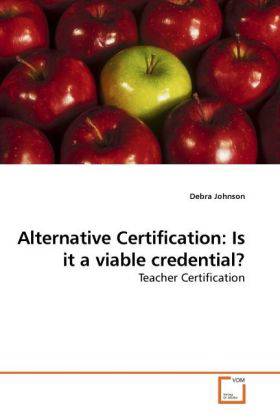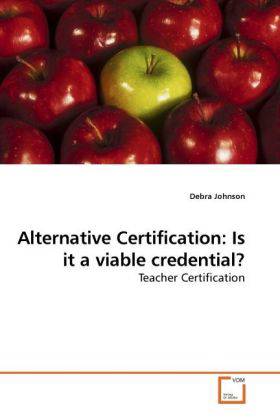
- Afhalen na 1 uur in een winkel met voorraad
- Gratis thuislevering in België vanaf € 30
- Ruim aanbod met 7 miljoen producten
- Afhalen na 1 uur in een winkel met voorraad
- Gratis thuislevering in België vanaf € 30
- Ruim aanbod met 7 miljoen producten
Zoeken
€ 77,95
+ 155 punten
Omschrijving
There continues to be controversy in academia and in the state legislature of Pennsylvania concerning alternative teacher certification and the criteria for awarding such certification. Those opposing alternative certification have ranged from teacher unions to associations representing college and university teacher educators. However, by 1993, despite being belittled and sometimes praised, forty- one states had instituted alternative certification programs for individuals who held degrees and wished to teach. The process of obtaining a teacher certification in most states has only one focus, meaning that the method, which includes coursework taken at a college or university, a teaching practicum and the passing of a national or state teacher's exam or both, is believed to be the one best way for obtaining a teaching cerification. Policy pertaining to what makes a teacher a professional educator includes a teacher's knowledge base as to how a teacher was prepared, the conduct and performance of a teacher, and how a teacher is considered competent.
Specificaties
Betrokkenen
- Auteur(s):
- Uitgeverij:
Inhoud
- Aantal bladzijden:
- 276
- Taal:
- Engels
Eigenschappen
- Productcode (EAN):
- 9783639225358
- Verschijningsdatum:
- 14/01/2010
- Uitvoering:
- Paperback
- Formaat:
- Trade paperback (VS)
- Afmetingen:
- 152 mm x 229 mm
- Gewicht:
- 408 g

Alleen bij Standaard Boekhandel
+ 155 punten op je klantenkaart van Standaard Boekhandel
Beoordelingen
We publiceren alleen reviews die voldoen aan de voorwaarden voor reviews. Bekijk onze voorwaarden voor reviews.











